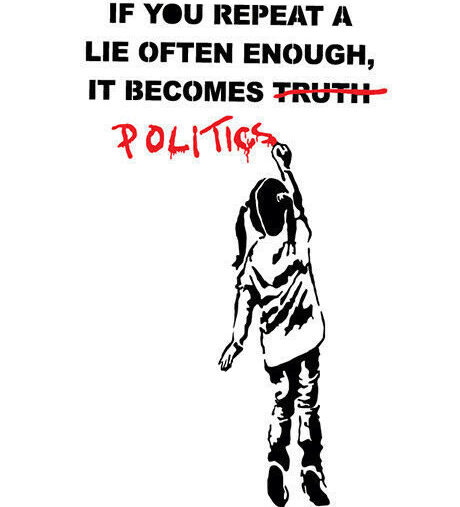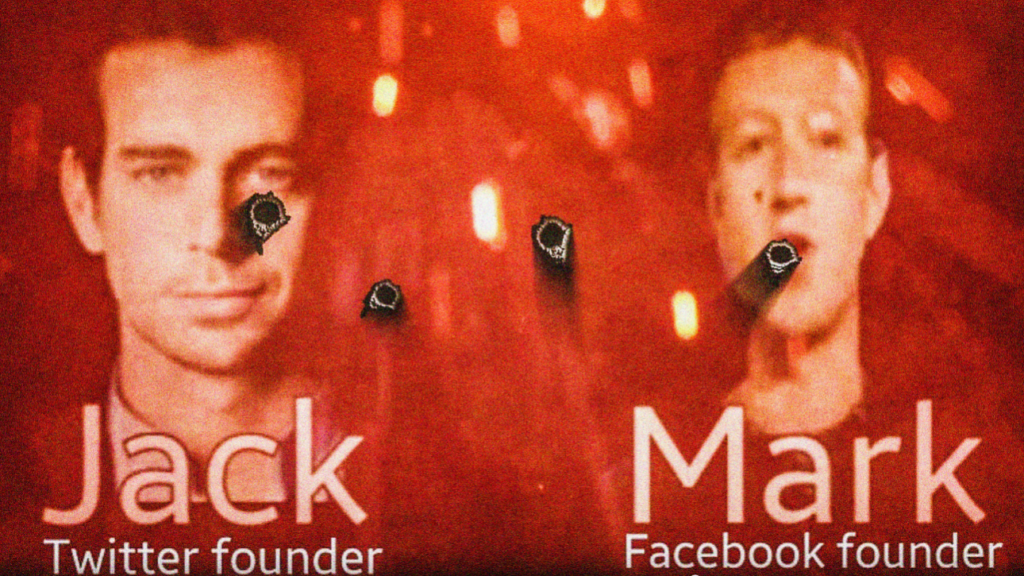How should we fight for the truth? It’s easy to agree with this British philosopher about the urgency of taking on this task (listen).
In the process of considering this issue, we will encounter an age-old paradox. To defend the Truth, someone must play the role of the defender. But who is to say that this individual, corporate entity, or political regime is equipped to act as the arbiter of Truth? Indeed, what is to prevent them from putting their own interests above the Truth-seeking principles they claim to defend?
19. Tuesday, April 15 Tools and techniques for distinguishing fact from fiction, lies, disinformation, and bizarro conspiracies

Today, I would like to address the issue of fact-checking in an era of Post-Truth and conspiracy theories.
Your suggested tools for correcting disinformation and lies on social media are on the link to the right side of this page

Darrell M. West, “How to Combat Fake News and Disinformation.” Brookings, 18 Dec. 2017 READ
Adam Grant, “The Science of Dealing with Unreasonable People” PRINT AND READ
Read this scholarly study and ask yourself whether we have a realistic chance of successfully combatting real “fake news”:
Oscar Barrera, Sergei Guriev, Emeric Henry, and Ekaterina Zhuravskaya, “Facts, alternative facts, and fact checking in times of post-truth politics”: PRINT AND READ
Could our efforts to identify Untruth inadvertently lead to the promotion of more Untruth? READ
20. Thursday, April 17 Should we allow others to do the work of safeguarding Truth for us?
What role should the leaders of global communications networks play in defending the Truth? In this section, we will reflect on both the policies of digital giants and their potentially negative political and social implications.
There are a lot of articles here, but most are very short. To ensure that we have a high-quality discussion, take notes on the ones you are not required to print.
I. The heads of Google, Twitter, and Facebook have responded to the challenge of reviewing digital content in provocatively different ways. Which approach would you choose?
Using these brief articles, compare and contrast these platforms’ stands before the Presidential election of 2020 with those after January 6, 2021.
Before the Presidential election
Daisuke Wakabayashi and Shane Goldmacher , “Google Policy Change Upends Online Plans for 2020 Campaigns” PRINT AND READ
Cecilia Kang and Mike Isaac, “Defiant Zuckerberg says Facebook won’t police free speech” PRINT AND READ
Kate Conger, “Twitter will ban all political ads, CEO Jack Dorsey says” PRINT AND READ
And after January 6, 2011
Twitter pulls the plug on Trump: TWEET
But, Facebook isn’t so sure: HERE
II. How comfortable should we feel about putting Truth-telling in the hands of global communications corporations?
Amnesty International Report, Surveillance Giants READ pp. 5-11 and skim the rest
Caitlin Dewey, Washington Post, August 19, 2016, “98 personal data points that Facebook uses to target ads to you” READ If politics is about power, this is a lot of power!
Could these data points be 98 good reasons for shutting down your Facebook account?
See this journal abstract confirming that computers can know you better than anyone else READ SUMMARY HERE
21. Tuesday, April 20: The Second Great Debate

Topic: “The Facebook Oversight Committee should definitely uphold the ban on Donald Trump in the name of protecting American democracy.”
For relevant articles (all short), see the following:
Facebook decision after January 6, 2020: READ
Facebook “Community Standards” HERE
An Impending Decision: READ
Contrasting arguments:
v.
And this is frustrating for people who actually need to decide one way or the other. It’s hard, but sometimes in life, you just have to choose READ
Your second essay assignment is here
22. Thursday, April 22: A visit by Carlos Lozada, Washington Post (ND ’93).
Carlos Lozada, What Were We Thinking? Chapter 5, PRINT AND READ
23. Tuesday, April 27: John Dewey Revisited: Public Engagement as a solution
If democracy is all about giving citizens the right to assert their views, could some form of participatory democracy provide the solution to safeguarding the Truth? Is Truth-seeking “from the ground up” possible?
For this session, I will provide you with an assignment in which you open your own Wikipedia account.
In preparation for this session, consider the unique croudsourced experiment in Truth-telling called Wikipedia. Also, please remind me to tell you what it’s like to be banned by Wikipedia.
What standards does the participatory encyclopedia, Wikipedia, employ to determine “what’s fit to print”? How are these standards upheld? Please choose the most controversial political issue you can think of (e.g., the Arab-Israel conflict) and attempt to determine whether Wikipedia’s respective site lives up to its pretensions “to provide a neutrally written summary of existing mainstream knowledge in a fair and accurate manner with a straightforward, “‘just-the-facts style.’” If your site meets these standards, see if you can find one that doesn’t.
Wikipedia’s Mission Statement READ AND PRINT
Alex Pasternack, “How Wikipedia’s volunteers became the web’s best weapon against misinformation” PRINT AND READ
Richard Cooke, “Wikipedia Is the Last Best Place on the Internet” PRINT AND READ
To pique your curiosity, see if you can figure out why certain Wikipedia sites ranked among the 5000 most accessed pages over the past week. The page is supposed to be regularly updated. I was fascinated by both the topics and their rankings HERE.
As of Sunday, January 24, 2021, Aaron Hernandez was the most accessed person (I have no idea why). Betty White (76) beat Donald Trump (77), but behind Jimmy Hoffa (69). I gave up looking for Biden.
24. Thursday, April 29
TBA
